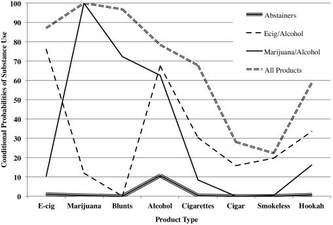research expertıse > optımızıng ınterventıons

We believe that, as products with social value and content, interventions and policies also deserve to go through an optimization process. Optimized interventions will lead to higher effect sizes and more sustainable impact on a more efficient budget.
We aim to contribute to the development of both evidence-based and optimized interventions.  Single Mediator Model Single Mediator Model
Example Tools for Program Optimization Statistical Mediation analysis: Mediation analysis investigates how an intervention changes intermediate variables that are hypothesized to influence the designated outcomes. It contributes to program improvement by identifying the causal intervening mechanism, determining effective or counterproductive program components, and refining the program accordingly. For example, drug prevention programs in high schools typically include different components targeting different mediators (such as social norms, refusal skills, beliefs about benefits and risks) to decrease intention to use drugs. However, mediation analysis studies show that not all of those components are actually successful (Kisbu-Sakarya, MacKinnon, O’Rourke, 2015).  Latent subgroups of drug users in high schools (Morean et al., 2016) Latent subgroups of drug users in high schools (Morean et al., 2016)
Latent Profile Analysis: Latent profile analysis identifies subgroups of the targeted population, based on patterns of measured individual characteristics and behaviors, so that interventions can be tailored to support the neediest individuals. It answers questions such as:

Factorial Experiments: Factorial experiments can be used to identify the most effective set of intervention components. In a factorial design, the researcher is interested in testing several different aspects of an intervention by manipulating each of them and testing their impact on the targeted outcome variable. A recent example study is conducted by HealthWise South Africa School based Substance Use and Sexual Risk Prevention Program researchers. The main research question was to estimate the individual effect of the three following program components on implementation quality: enhanced teacher training, enhanced teacher support, and enhanced school environment (Caldwell et al., 2012). This evaluation design aims to create the most outcome- and cost-effective version of the intervention. Adaptability of Transported Evidence-Based Interventions: Despite the increasing popularity of evidence-based interventions, we have limited knowledge about their effectiveness when transported to other countries different from where they originated. For example, some components of an effective parenting intervention born in a Western country may not work, or even produce counterproductive effects in a different culture. Thus, transporting an evidence-based intervention to a different country or context requires a feasibility and adaptability study accompanied by rigorous impact evaluation. |
Program Evaluation Optimizing Interventions Methodological Innovations Advanced Data Analysis Systematic Reviews of Evidence |
|
Optimizing Program Effects: New methodological developments in testing how a program achieves its intended impact
Intervention programs are designed to change mediating (intermediate) variables theorized to be causally related to the outcome variable. In this chapter published in Oxford Handbook of Quantitative Methods, we aimed to supplement the existing resources on mediation analysis with a description of recent advances. More... Closing the Gender Achievement Gap in STEM: Testing a Culturally Adapted Version of a Brief Intervention
In the case of a gender-equality intervention, cultural norms and values related to gender practices are all likely to influence acceptability, adaptability, and effectiveness of evidence-based interventions. Using randomized controlled trials, we test how an adapted version of a brief social psychological intervention can decrease gender achievement gap in STEM fields. More... |
|
Understanding Fatherhood in Turkey: A Latent Profile Analysis
Using a large and representative sample of fathers, we implement a latent class analysis to identify types of fathers in Turkey. The study aims to inform social policy and intervention to create effective parenting interventions in traditional patriarchal cultures. Manuscript under invited review... |

